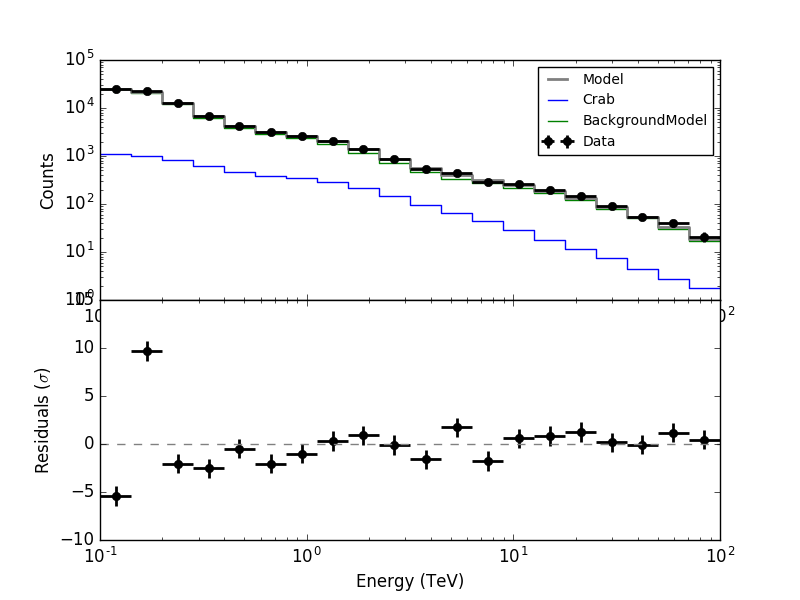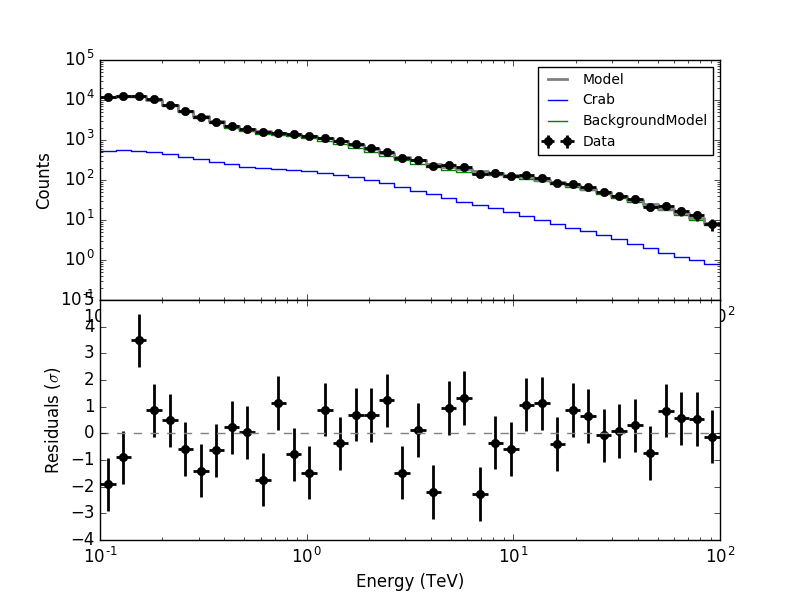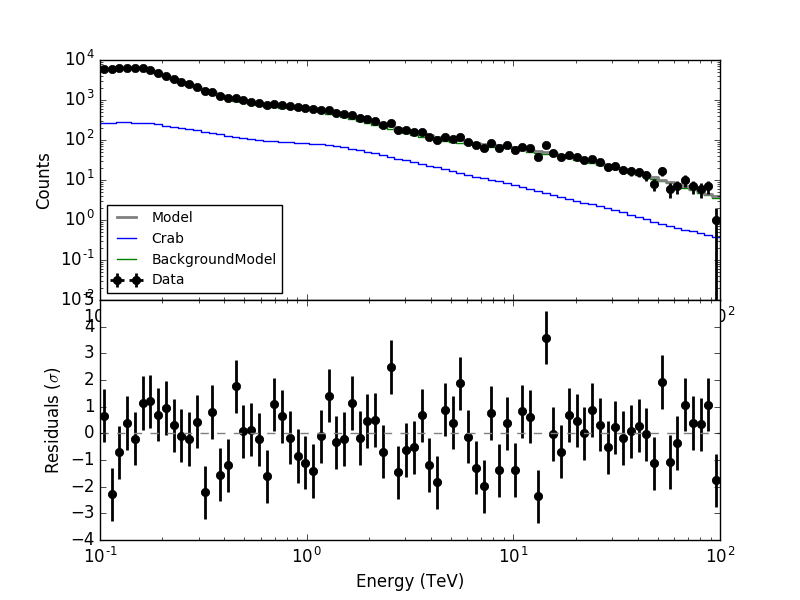Action #3068
Improve precision of background model computation in GCTACubeBackground::fill method
| Status: | New | Start date: | 11/15/2019 | |
|---|---|---|---|---|
| Priority: | Normal | Due date: | ||
| Assigned To: | - | % Done: | 0% | |
| Category: | - | |||
| Target version: | - | |||
| Duration: |
Description
Martina Cardillo noticed some issues with csresspec that were ultimately related to the accuracy of the background cube computation.
The background model values in ctbkgcube are currently computed (in GCTACubeBackground::fill()) by assuming that over an energy bin the background rate follows a power law (this is to speed-up computations). If, by chance, there is a kink over the energy bin (which likely is for a small number of energy bins), the background evaluation will be inaccurate. The effect is reduced or vanishes by increasing the number of energy bins. Below are the residuals for Martina’s example for 20, 40 and 80 energy bins over the range 0.1 - 100 TeV.
| 20 energy bins | 40 energy bins | 80 energy bins |
 |
 |
 |
The situation can probably be improved by performing a numerical integration over energy of the background model in GCTACubeBackground::fill(). This will of course increase the computing time, but it would make the background model computation independent of the actual binning. Since the accurate modeling of the background is important, such a speed penalty is probably okay. Thought it should be remembered that the background for real data is probably never known to sufficient accuracy that this effect actually matters.
Recurrence
No recurrence.


